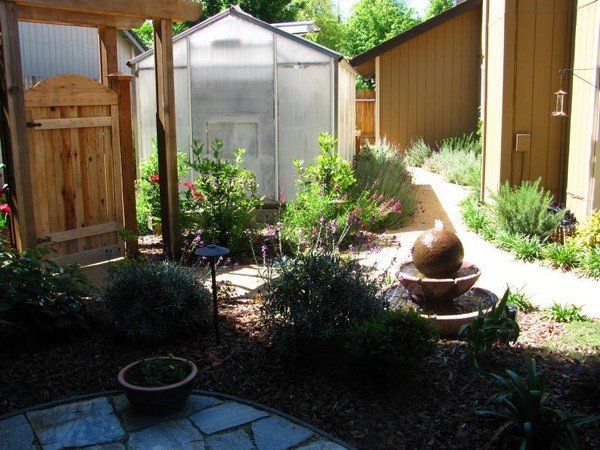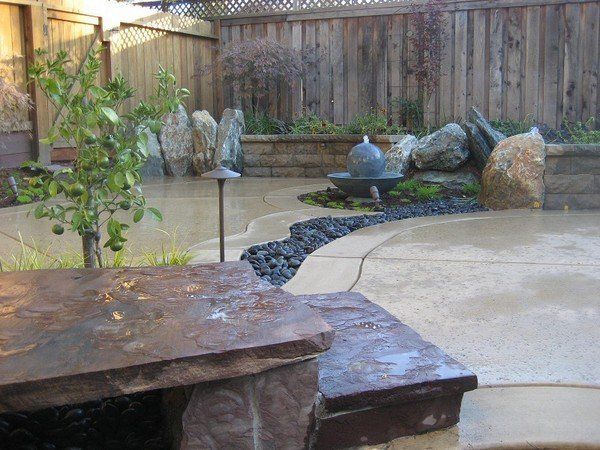Home Value
Plant a Tree and Watch Your Home's Resale Value Grow
by Julie Flaherty, New York Times: June 1, 2003, Sunday
THOMAS GLASGOW was thinking more about aesthetics than about investments when he began sprucing up the yard of the small ranch-style house in Arlington Heights, Ill., that he and his wife, Denise, bought in 1996. He planted shrubs and perennials, removed overgrown evergreens and dying trees and cultivated a magnolia tree in the backyard. Two years later -- after spending less than $2,000 on the weekend projects and after making some minor cosmetic changes inside -- he said they had sold the house for $100,000 more than they had paid for it.
Mr. Glasgow, 35, a lawyer, said he and his wife had made a $60,000 profit from the sale of their second home, a small colonial not far from their first house; the bulk of the work on that property was also outdoors and included a landscaped patio. Their current home, also in Arlington Heights, near Chicago, is a 5,000-square-foot ranch that they bought last year for $496,000 and then landscaped extensively. It was recently appraised at around $670,000, he said.
The strong housing market, of course, had helped to bolster the value of all three homes, but Mr. Glasgow said the landscaping was also a big factor. ''If you pull up and you've got a dilapidated garage and holes in the lawn and trees that are dying, it takes away so much from the house,'' he said. ''It's not going to exude the life and warmth of being in an actual home.''
Real estate experts agree that landscaping can greatly increase the resale value of a home -- and seal a deal faster by providing ''curb appeal.'' Last year alone, Americans spent $39.6 billion on lawn and garden products, or about $466 a household, on average, 5 percent more than the $37.7 billion they spent the previous year, according to the National Gardening Association in South Burlington, Vt.
Not all outdoor projects have the same potential payback. In fact, a poor landscape design may even decrease a property's value.
''I would say that a really good design will add 20 percent, easy,'' said Daniel Lowery, a landscape designer in Seattle. But ''you can't expect that for every job,'' he added.
Robert Blose, 54, a carpenter, apparently had great success with the elaborate assortment of flowers, trees and shrubs, as well as other landscaping additions, at the home he sold recently in Palatine, Ill., also near Chicago. Christine Wexley, 33, a financial controller, said that she and her husband,
Matthew, a lawyer who is also 33, had noticed the ''For Sale by Owner'' sign in the front yard while driving by the home one day and ''had to have it because of the yard.''
Mr. Blose said he was proud of the $100,000 in improvements he had put into the house himself, including new cedar shingles and interior and exterior painting. But he couldn't deny that the $8,000 in landscaping had paid off. He said he bought the house in 1992 for $160,000 and sold it for $459,000 several months ago.
Many homeowners, of course, do not regard landscaping as only an investment. ''People are spending more money on their homes, taking the indoors outside,'' said Nancy Jacks Montgomery, a spokeswoman for the American Nursery and Landscape Association in Washington. ''They are creating their own private, safe place.''
Some trends this year, according to the experts, have to do with water: fountains, koi ponds and reflecting pools. Also popular are fully functioning outdoor kitchens and outdoor lighting, which is used to highlight features like sculptured evergreens and flagstone paths.
Ms. Montgomery said homeowners were also buying more outdoor accoutrements, like teak patio furniture and trellises, with the same quality as their interior furnishings.
Landscaping's contribution to resale value is difficult to measure because there are so many other factors to be considered when appraising or buying a home. But studies over the years have put the figure at 4 to 15 percent.
One of the most recent studies, conducted in metropolitan Quebec City by Laval University and completed in 2000, found that quality landscaping increased the value of a typical bungalow by 7.7 percent. The study also provided a breakdown of specific projects and how they generally affected the market value of a house. Landscaped patios added 12.4 percent, it said, and hedges or landscaped walls added 3.6 percent.
And what about trees? The study did not quantify their value, but experts say they are among the best landscaping investments. Properly placed trees, they noted, can help cool a house in summer and insulate it in winter, as well as enhance privacy and quiet street noise. An 8-foot-high tree may grow a foot a year, experts say. ''In five years that will not be a $100 tree,'' Mr. Lowery said. ''It will be a $1,000 tree.''
Another study, conducted in Greenville, S.C., in the mid-1990's by researchers at Clemson University, examined the quality of landscaping -- the type, size and condition of plants and trees and how they are arranged -- and its effect on a home's resale value. Homes classified as having ''excellent'' landscaping sold for 4 to 5 percent more than homes with ''good'' landscaping. Homes with ''fair'' or ''poor'' landscape appeal had a sale price 8 to 10 percent lower than homes with ''good'' landscapes.
''If your property is poorly maintained and everyone else has attractive flowers and shrubbery, your property is going to be viewed as the black sheep of the neighborhood,'' said Robert W. Saben Jr., president of the Massachusetts Board of Real Estate Appraisers in Dedham.
Before investing in landscaping services or products, Mr. Saben said, homeowners should look at other properties in the area. Do most have well-manicured lawns? Are the fences in the current style? That will help to set the standard, he said.
But, he added, ''you don't want to overdo it because you certainly can spend a lot of money on landscaping,'' and you may not always recoup that investment.
If you have a tight budget, experts suggest starting from the front of the house and working your way back to generate the most curb appeal. Planting away from the house and toward the street helps to create depth. A homeowner with budget and time constraints should consider container landscaping, which would include planting trees, shrubs and flowers in pots, they added. At the very least, they say, you should trim trees that hang over a driveway and cut back shrubs that encroach on windows.
Real estate experts say homeowners should also consider the type of buyer they want to attract. The study in Quebec found that retirees, for example, generally preferred yards with plenty of trees, while younger adults favored homes with more lawn.
When Julie Harkins, 49, a mortgage broker in Orinda, Calif., sold her home two years ago, her sloped yard discouraged many potential buyers. ''They said, 'nice house, but there's no lawn,' '' she said.
She recently spent $40,000 for landscaping on her current home, and while she kept a good portion of the lawn -- lesson learned -- she fulfilled her own dream of a contemporary design with an asymmetric patio of dark-stained concrete inlaid with slate. ''It's a little more expensive than a square patio, but it's not that much more,'' said Deanna Glory, her landscape designer.
MR. LOWERY, the designer from Seattle, says that more and more homeowners in his region are turning to landscaping professionals to tackle hilly backyards that were previously unusable. On one recent project, ''you couldn't stand upright on any part of this property,'' he said. ''We terraced it out so there were several flat areas, and then enclosed it with plants and gates and walls.'' He said that project had added about 70 percent more usable space to the property.
Mary and James Desch, who have a ranch-style home in Allentown, Pa., are having similar work done on their yard, which they describe as one long, steep hill. When the $35,000 project is completed this summer, they will have French doors that open onto a large patio and a tiered yard. The work will complement the $15,000 worth of landscaping they had done to the front yard a few years ago.
Mrs. Desch doesn't know how much of the landscaping investment they will recoup when it comes time to sell the house. But at the very least, she said, ''our garden has become a focal point'' of the house, and even the neighborhood. ''We know our neighbors like looking at my garden,'' she said.



